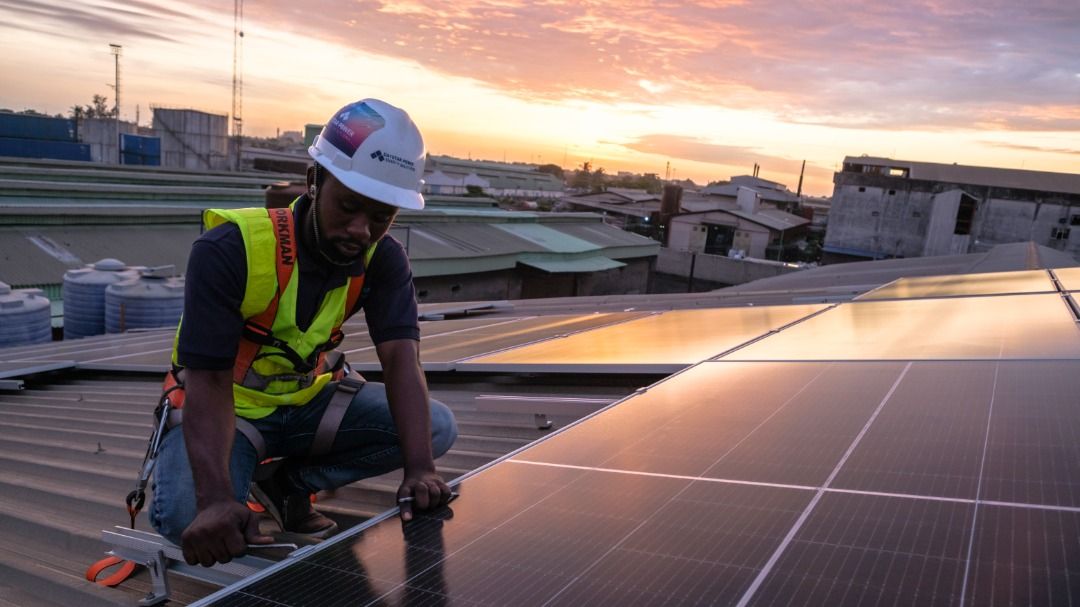How Daystar Power's acquisition by Shell will drive Africa's renewable energy
Shell’s first power acquisition in Africa, will enable Daystar Power to increase its installed solar capacity to 400MW by 2025.

In 2020, South Africa was reportedly the largest polluter in Africa, carbon dioxide (CO2) emissions in the country reached 7.62 metric tons per capita, according to Statista. Libya and Equatorial Guinea followed, emitting around 7.4 and 7.3 metric tons of CO2 per capita, respectively.
In addition, Africa's average stood at roughly one metric ton per capita. In absolute terms, South Africa and Egypt produced the most emissions in Africa in 2020.
However, Africa accounts for the smallest share of global greenhouse gas emissions [pdf], at just 3.8%, in contrast to 23% in China, 19% in the US, and 13% in the European Union. Yet, particularly vulnerable to climate change, the continent is working to tackle climate hazards head-on.
To join in the efforts to deliver carbon emission reductions and power cost savings to commercial and industrial businesses across Africa, Shell has announced that it will acquire Daystar Power, a West African hybrid solar power solutions provider— the deal is subject to regulatory approval.
The acquisition will allow the West African commercial and industrial (C&I) solar provider to grow its operations in the region while expanding across the African continent. It will also see Shell, which has long been active in Africa's hydrocarbons market but must look for new sources of growth as fossil fuels are phased out.
Launched in 2017 by Jasper Graf von Hardenberg and Christian Wessels, Daystar is currently present in four countries, runs over 300 power installations with an installed solar capacity of 32 MW, and has a team of 140 employees. It plans to further grow its client base in the financial services, manufacturing and agricultural sectors. Existing clients include Seven-Up Bottling Company, Ghandour Cosmetics and UAC Foods.
In July 2021, Daystar announced that it had raised a $20m facility from the World Bank’s private sector arm, the International Finance Corporation, following on from a $38m series-B fundraising in January 2021.
"We have seen booming demand for solar energy in the African markets where we operate. That has been reflected in our growth: we are on track to increase our installed solar capacity by 135% in 2022," said Jasper Graf von Hardenberg, CEO and Co-founder of Daystar Power. "As part of Shell, we will be able to execute our mission even faster to deliver carbon emission reductions and power cost savings to businesses across Africa."
According to a statement shared with Benjamindada.com, Daystar Power’s co-founders and management team will continue to grow its operations in its key West African markets, while expanding its presence to other African countries in East and Southern Africa. Daystar Power targets to increase its installed solar capacity to 400MW by 2025 to become one of Africa’s leading providers of solar power solutions for commercial and industrial businesses.
"This deal marks our first power acquisition in Africa and a fundamental step for Shell in growing our presence in emerging power markets. We have had a long and established presence in West Africa and with Daystar Power, we are taking our first steps into the renewable power space," said Thomas Brostrøm, Shell’s Executive Vice-President, Renewable Generation.
"As we do this, we’re helping to address a critical energy gap for many who currently rely on diesel generators for backup power. Daystar Power has a loyal customer base and a promising growth outlook, and by combining our efforts and expertise, I believe we can make a real difference in the energy transition, for West Africa and beyond," Brostrøm added.






